Big news alert 🚨 Our amazing ELC academic team Nashwa Aly , Hekmat Ahmed and Marwa El-Sawy just attended and presented at ILACE 2024 🎉 They absolutely showed their innovative ideas and research findings 💡So proud of them for representing our centre English Lang Centre Pharos University in Alexandria and making a mark in the academic world.
Keep shining, team!
PUA English Language Centre Academic team could not resist the incredible opportunity to attend the Nile TESOL Conference for the 2nd consecutive year. It was an experience like no other!
The energy and positivity of the place along with the exceptional company together with networking, socializing and learning all shaped the team’s PD experience!
A special shoutout to our team for their relentless efforts and commitment towards success in our 1st booth @ Nile TESOL Conference . It’s a true testament to our mission of providing quality education and making a positive impact in the world.
Cheers to our three top winners in the CELTA rotary 2024.
the AUC 9th ILACE 2023
Gehad Samir
Pharos University in Alexandria English Language Centre is so proud of Gehad Samir, our academic coordinator and language teacher.
Gehad will be presenting at the AUC 9th ILACE 2023 on formative versus summative assessment.
ILACE is an International Language Assessment Conference In Egypt that will take place on the 1st and 2nd of September 2023 Way to go Gehad 💪💪👌👌🎉🎉👏👏👏
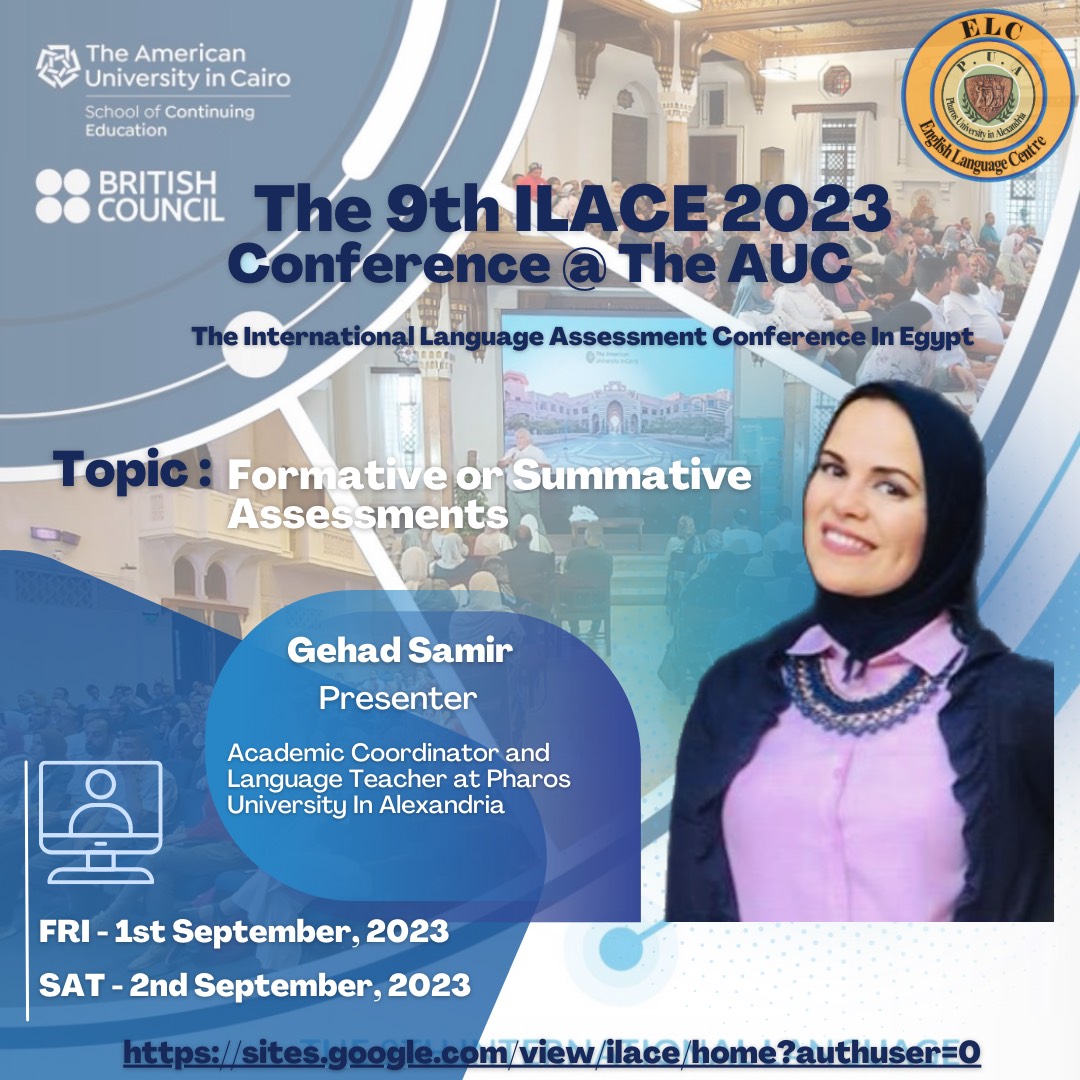
Nile TESOL 2023 in the 23rd and the 24th of January
Noha Helmy
Noha is a CELTA-certified English teacher, assessment specialist, business course coordinator, and certified teacher trainer at Pharos University. She has been working in the education field in Egypt and overseas as well with different age groups within different institutions. She is also a certified National Geographic educator and a big advocate of outdoor classrooms, PBL, CT skills, and the importance of raising cultural awareness inside the ESL classrooms.
Noha is going to present a session titled: (The WBT Technique, a New Successful Trend in Managing Classrooms)
This session aims at helping participants explore the basics of this new technique that engages the whole brain of the student, and is suitable for all types of learners. Participants will get the chance to see how it could be easily used with their students and how it will turn the classroom environment into a fun highly interactive motivating one. In addition to this, participants will get the chance to practice the technique themselves during the session to feel confident using it in their classrooms. Participants will also be directed to go further with their professional development if they want to consider being a certified WBT Educator in the future.
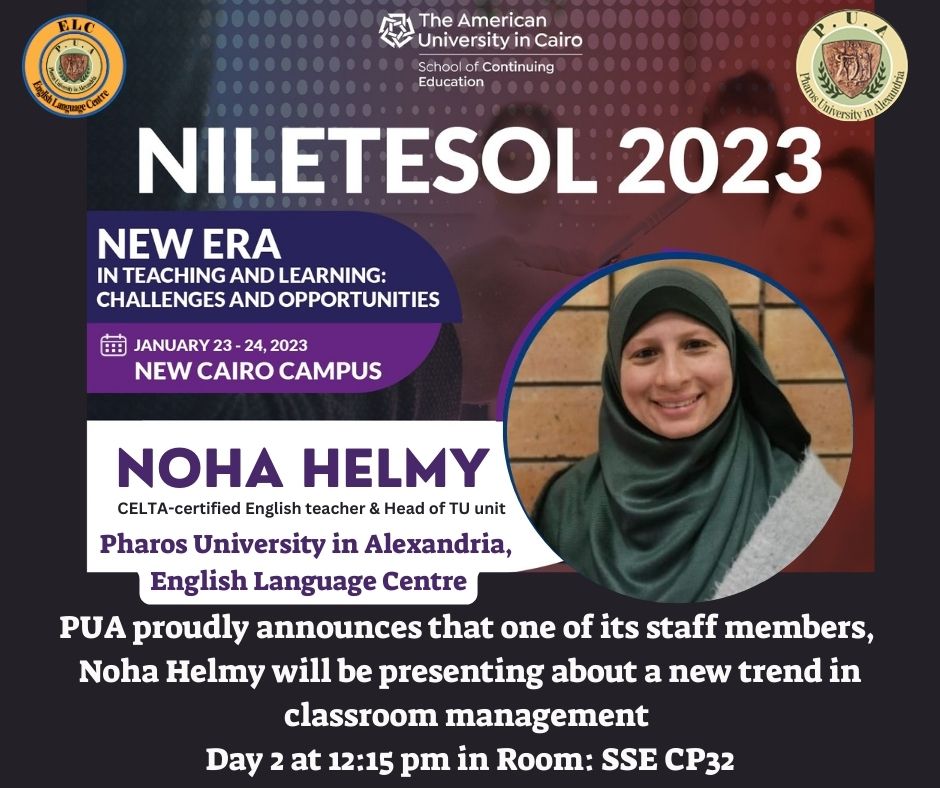
Nile TESOL 2023 on the 23rd and the 24th of January
Dalia is a graduate of the Faculty of Arts, Alexandria University, Holder of a TEFL certificate, CELTA certified English lecturer, online material designer at PUA, and English instructor at AMIDEAST and Boost Academy.
Dalia is going to present a session titled:(Promoting learners` autonomy)
This session will be discussing the importance of raising learners` autonomy and exploiting ways to promote learner independence using effective strategies to help learners to promote lifelong learning, with the guidance of their teachers.
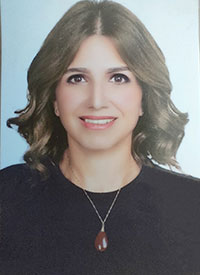
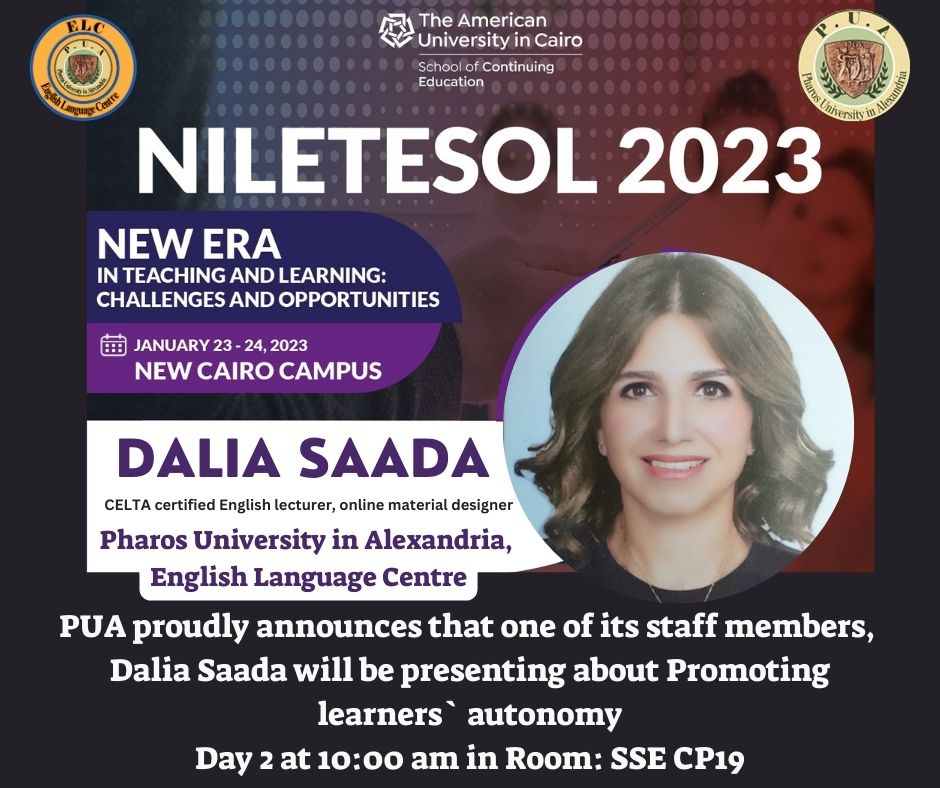
The International Language Assessment Conference, 2022
Andrew Wagdy
Andrew W. Ghaly is the administrative director of the English language centre at Pharos University in Alexandria. He is a Cambridge-certified speaking examiner and a researcher in language assessment.
Andrew presented at the International Language Assessment Conference on 3rd September 2022 with the topic: a post-pandemic world and our readiness in future times of crisis.
Andrew gave a session at the International Language Assessment Conference in Egypt which took place at the American University in Cairo. During the session, Andrew discussed the measures taken to respond to the challenges of delivering valid assessments during the pandemic period and how effective those measures proved to be. He also shared with the audience guidelines to ensure the resilience of language assessment measures in different times of crisis. Andrew’s session was voted one of the conference’s best at the closing ceremony.

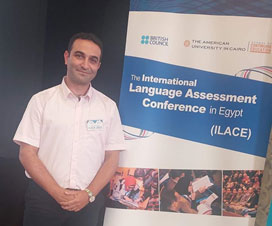
The International Language Assessment Conference, 2022
Noha Helmy
Noha is a CELTA-certified English teacher, assessment specialist, business course coordinator, and certified teacher trainer at Pharos University. She has been working in the education field in Egypt and overseas with different age groups within various institutions. She is also a certified National Geographic educator and a big advocate of outdoor classrooms, PBL, CT skills, and the importance of raising cultural awareness inside ESL classrooms.
Noha presented Online Webinar with EDUCAST & Iratiquaa Academy on 15th April 2022 with the topic: How to Write smart objectives.
In this webinar, three main points were discussed:
1- Objectives Vs Activities
2- What makes an objective worthwhile?
3- How to write SMART objectives?
The main point of the webinar was how to write SMART objectives, and we clarified that each letter stands for a criterion.
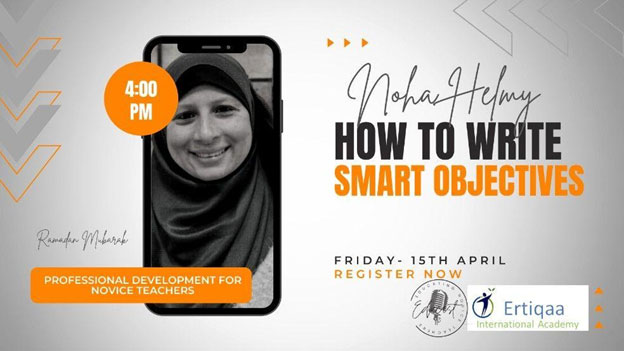
NileTESOL 2022 26th Annual Conference
Noha Hilmy
Noha is a CELTA certified English teacher, assessment specialist, business course coordinator, and a certified teacher trainer in Pharos University. She has been working in the education field in Egypt and overseas as well with different age groups within different institutions. She is also a certified National Geographic educator and a big advocate of outdoor classrooms, PBL, CT skills and the importance of raising cultural awareness inside the ESL classrooms.
Noha presented at NileTESOL 26th annual conference on project based learning:
Noha started her talk by focusing on the theoretical part first highlighting some famous definitions that explain this approach like the definition of Buck Institute for Education, 2018 that describes it as a ‘teaching method in which students gain knowledge and skills by working for an extended period of time to investigate and respond to an authentic, engaging, and complex question, problem, or challenge’
Then she moved to the practical part presenting a video of a teacher summarizing her experience in applying this approach with her students using the National Geographic learning framework which is considered one of the best frameworks that adopt such an approach.
Simply, National Geographic Learning follows three phases in applying such an approach.
Phase One: There are three elements that need to be covered in tackling any topic which are: the Natural World, the Human World, and the Connection Between the Two.
Phase Two: is about defining the scales and perspectives the teacher is going to use to explore any topic. According to National Geographic, we have 3 scales (local, regional, global) and 7 perspectives (spatial, cultural, historical, political, economic, geological, and ecological). The teacher needs to choose one or more perspectives and scale.
Phase Three: The teacher reviews the National Geographic ready-made framework to choose what knowledge, skills, and attitude best suit her students.
The teacher then starts to plan her lesson in regard to the above points.
She also presented another example of an online lesson that can be achieved within the 45 min usual lesson time span to prove to the teachers that it’s not something difficult to apply within their regular lessons. She also viewed the two lesson plans of the two teachers and reviewed how they aligned the three phases to their lesson plans.
Then she drew a comparison between projects and project-based learning.
| Projects | Project Based Learning |
| Can be done alone | Requires collaboration and teacher’s guidance. |
| About the product | About the process |
| Teacher-directed | Student-directed |
| All projects have the same goal | Students make choices that determine the outcome |
| Products are submitted to the teacher. | Products are submitted to an authentic audience. |
| Lack real- world relevance | Based on real world experiences or problems |
| Occur after the “real” learning | Real learning occurs during the process. |
Noha directed teachers to the National Geographic Learning website for heaps of resources and professional development opportunities. At the end of the session, attendees have some questions which answers could be summarized in the following points:
Any teacher of any subject can apply such an approach, not only language teachers.
All subjects could be integrated through this approach.
Teachers can use their usual lesson plans to prepare an activity or a whole semester project based on project-based learning. What they need to do is to align the National Geographic standards to it.
The special thing about PBL is that it takes away the control from the teacher as an authoritarian figure and starts to give it to students. The teacher role here is of a guide only. Teachers here end up discovering and exploring with their students the findings they find along the way till they produce a product to the public audience at the end of the journey.
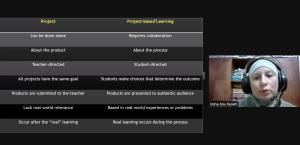
Marina Samir
Marina is a graduate of the Faculty of Education- English Department, and is a CELTA holder. Marina has experience teaching different age groups in different contexts. Currently, she is an English teacher and an academic Coordinator at Pharos University in Alexandria
Marina presented at NileTESOL 26th annual conference on approaches of ESL writing
Throughout the past years, an increasing interest in ESL studies was shown. Many handbooks and research were published, focusing generally on ESL education and specifically on sub-areas related to the field. One of these sub-areas that caught the attention of many scholars is ESL writing. Writing has always been a challenge for both teachers and students. That encouraged me to dig deeper into the topic and share my findings with the ELT community at the NileTESOL annual conference 2022 that took place in January.
During the presentation, Marina focused mainly on two approaches to writing, the product and the process approaches, highlighting the difference between them, their advantages and disadvantages, and their usefulness according to the teaching context. Around 70 people attended the session and they were interacting at every stage of the presentation. Interaction took place through Zoom chat box and other interactive online tools. The presentation ended with a final fruitful discussion about both approaches. The discussion was mainly concerned with the interaction patterns and inclusiveness of both approaches. The presentation and the discussions aroused many questions, most of which were related to the application of the two approaches in different contexts.
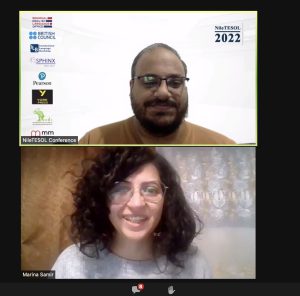
NileTESOL 2020 Annual Conference
Noha Hilmy
Noha’s season was a 90 minutes workshop titled:; Raising Cultural Awareness Using Critical Thinking Skills in the ESL Classroom
The first part of the session discusses the importance of raising the awareness of the target culture of the target language, and parallel to this raising the awareness of students’ own culture in addition to their awareness of themselves as cultural beings.
Noha offered my audience several activities that we did together in the workshop like the identity wheel, and the Iceberg analogy, plus modeling a whole active listening lesson that targets to raise cultural awareness using questions that urge students to use their critical thinking skills to answer. In the second part of the workshop, Noha stressed more on the importance of critical thinking skills as one of the top skills on the list of the 21 st century skills. Noha linked it to Bloom’s Taxonomy dividing them to HOTs and LOTS and applying the theoretical part by offering my audience a big variety of activities they can use when teaching language inside the classroom. At the end, Noha provided them with references to get back to if they want to dig more in the subject.
Audience in this session were teachers from different parts of Egypt: Cairo, Giza, El- Fayoum, etc. Teachers teaching different levels and age groups starting from upper junior to adults were welcome to attend. She even had kindergarten teachers who were really interested in the topic.
The interaction was really great inside the workshop. The attendees had the chance to work individually, in pair work, and also group work. They walked out happy with something solid in their hands to use and apply.
The experience of participating in a conference, sharing the knowledge and experience that I have, getting to know new people from all over Egypt and the world, learning from others, getting to know the updated methodologies and teaching techniques, all this and many more, that was amazing to go through.
Many thanks to all my management and all the people in Pharos University who
did their best to make this happen. Many thanks to the organizers in the AUC
who were really cooperative and helpful and supportive. Indeed it was a WOW
experience that she would love to go for again, and wish to see more participation from my PUA ELC colleagues as presenters in the coming years.

